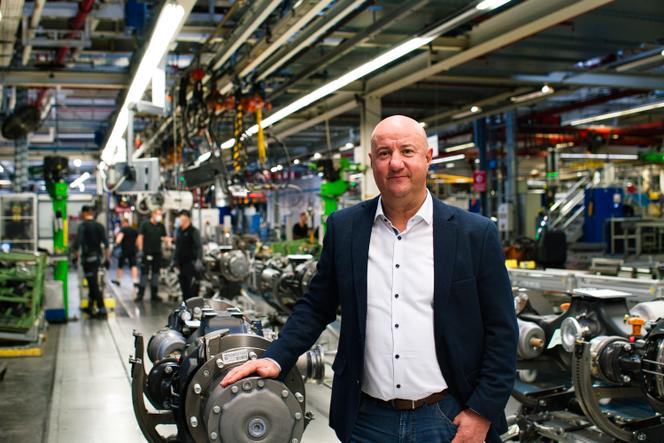


When asked when the conflicts plaguing her production unit started to become difficult to manage, Katharina Bayer answered without hesitation. "Three years ago, during the Covid-19 pandemic," she recalled. "We had irreconcilable positions on vaccination among employees. It left a mark." Bayer, who preferred not to give her real name, has worked as a quality controller at the German carmaker Daimler for 28 years. She is a Vertrauensperson ("person of trust") at the Gaggenau heavy-duty vehicle plant in southwest Germany.
As such, she is responsible for listening to her colleagues' problems and reporting them to the Betriebsrat, the work council. The Betriebsrat plays an important role in corporate management in Germany thanks to co-management laws (Mitbestimmung), which guarantee that half of the seats on large companies' supervisory boards go to employee representatives. As a contact person, Bayer has an acute understanding of the prevailing mood among the company's blue-collar workers.
Gaggenau has earned a reputation as a much-envied paradise of social dialogue and an example of co-management. The town is home to Germany's oldest automotive plant, still operated by Daimler Truck, Daimler's truck division, which split from Mercedes-Benz in 2019. It is located in one of the country's most prosperous regions, the cradle of its industrial history, where foundries first developed in the 17th century. Since then, metalworking and the development of machinery and automobiles have brought prosperity to this town near the French border, where many French citizens work. In Gaggenau, 85% of the 5,000 high-income earners are members of the IG Metall trade union, a very high rate. The atmosphere is still rural and family-oriented. In the brightly-lit canteen, retirees who used to work at the factory and still live in the area continue to meet at lunchtime over a traditional plate of sausage and lentils.
Yet here, as elsewhere in Germany, the system is faltering. "Over the past three years, people's stances have hardened. It's become more difficult to reach a consensus," lamented Jürgen Müller, a logistics employee who has been a Vertrauensperson here for several years. "People are challenging what they hear a lot more than they used to. Many are worried because of everything that's changing." The big topics are the switch to electric mobility and the decarbonization of heating systems, two issues currently being pushed by the government. "More often than not, colleagues say, 'Why us in Germany? The world is so big! What's in it for us if we make sacrifices while everyone around us does what they want?' It's something people don't understand," Bayer explained.
You have 71.26% of this article left to read. The rest is for subscribers only.
